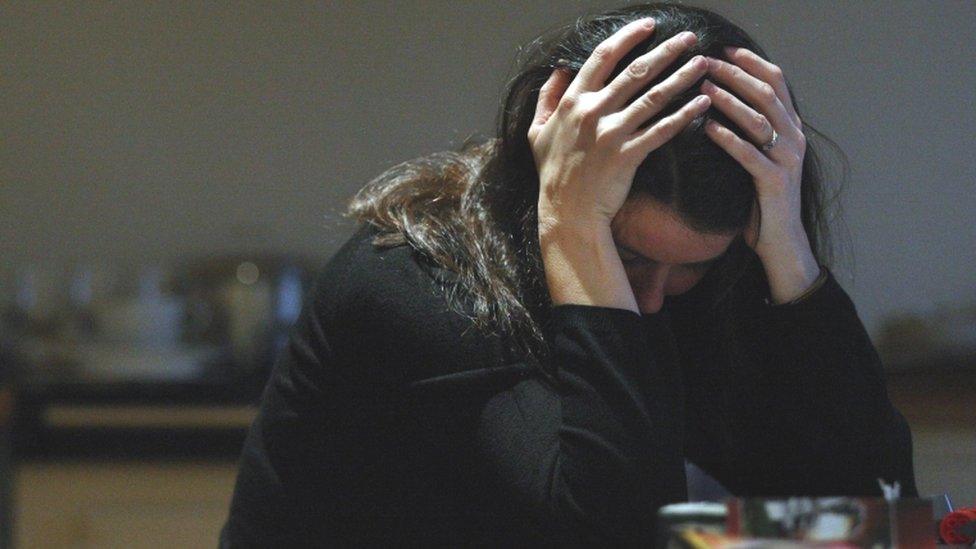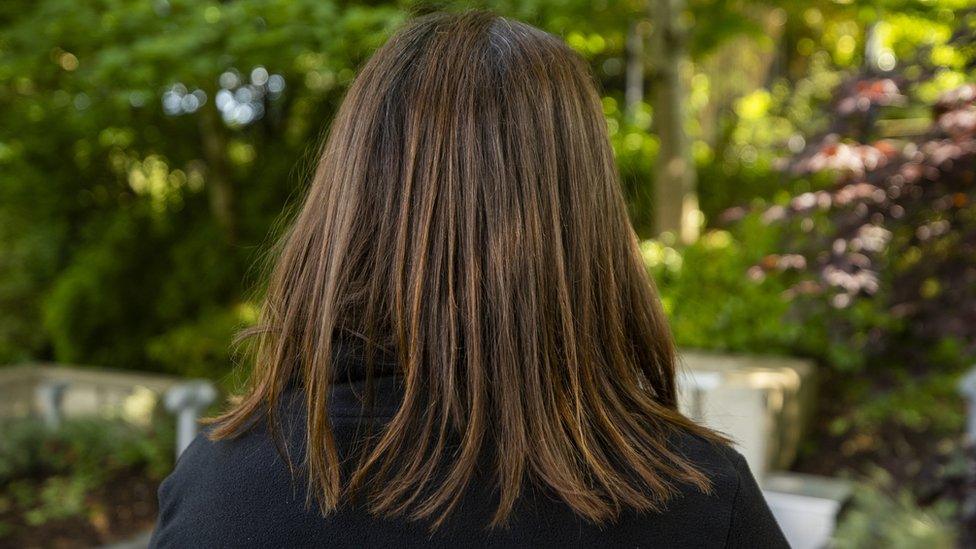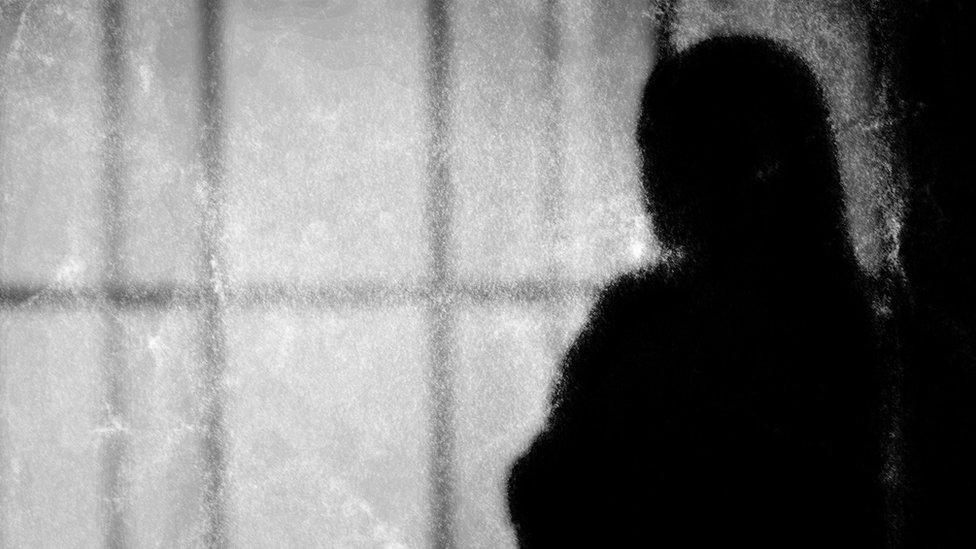Non-fatal strangulation: PSNI make 49 arrests in law's first month
- Published

Over the last 10 years seven people (six women and one man) in Northern Ireland were strangled to death
Forty-nine people have been arrested for reports of non-fatal strangulation offences since a new law came into effect last month.
Of these, 26 alleged perpetrators have been charged, police have said.
Non-fatal strangulation or asphyxiation is now punishable by up to 14 years in prison.
Strangulation is the second most common method of female murder in the UK, after a knife or sharp instrument.
Non-fatal strangulation is seen as a red flag for escalating violence in intimate partner relationships and a possible indicator for future risk of murder or attempted murder.
It became a stand-alone offence in Northern Ireland under the Justice, Sexual Offences and Trafficking Victims Act 2022, external.
Det Supt Lindsay Fisher of the Police Service of Northern Ireland's public protection branch said: "The successes so far have proven the need for this important piece of legislation.
"We will be continuing to work with partners to raise awareness of this crime type and encourage more victims to come forward."
She said more than 1,850 frontline officers and staff have been trained to recognise and respond and that the PSNI would "continue to use every tool at our disposal to bring potential offenders to justice".
"We are acting on reports made to us and supporting potential victims who are being brave enough to pick up the phone," she said.
Three women tell BBC News NI about their experiences with non-fatal strangulation
Over the last 10 years seven people (six women and one man) in Northern Ireland were strangled to death.
The Department of Justice said the new offence provided greater protection for victims.
"This crime can affect anyone and can occur in a number of circumstances.
"However, there are those who use strangulation and asphyxiation to exert control and fear in others, including in cases of domestic abuse.
"Research shows that this type of abuse is eight times more likely to result in domestic homicide.
"In recognition of the serious harm it causes, this new offence carries greater penalties than were previously available."
If you are affected by domestic abuse, there is a range of support services available via the BBC's Action Line page.
- Published26 June 2023

- Published1 February 2023
